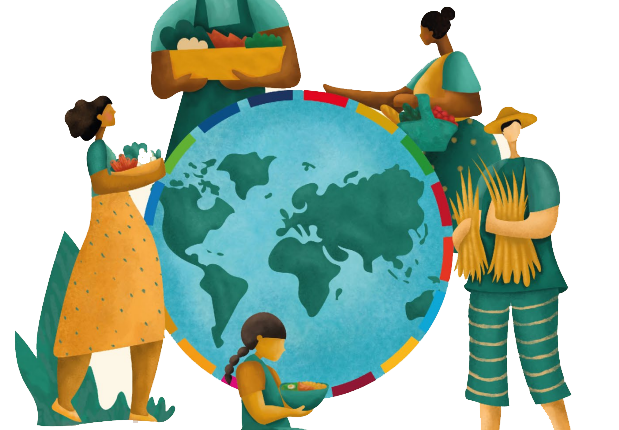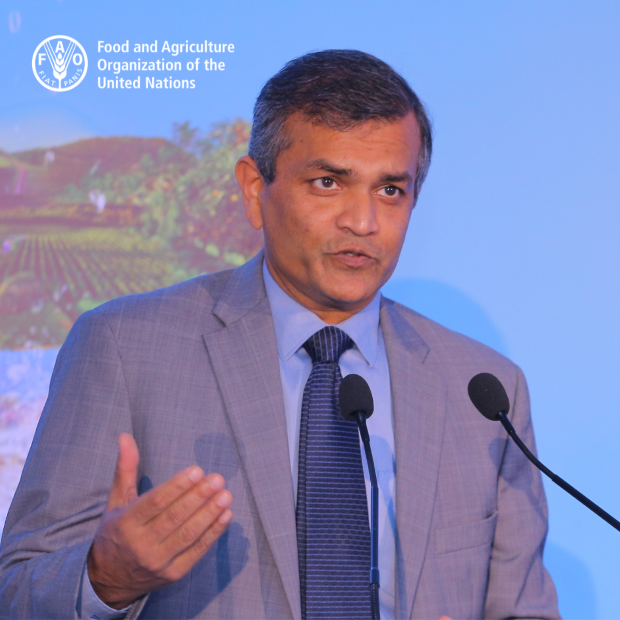By Vimlendra Sharan
On September 29, the world marks International Day of Awareness on Food Loss and Waste, highlighting one of humanity’s pressing paradoxes. As the global population nears 8.5 billion by 2030, we still waste 1.3 billion tonnes of food annually – enough to feed three billion people. Sri Lanka is no exception. This crisis calls for urgent action, and increasingly, young people are emerging as catalysts for change.
The traditional ‘take-make-use-discard’ model has proved unsustainable. A shift toward circular approaches – refuse, regenerate, reuse, and redesign – is gaining global momentum. At the heart of this transformation lies a simple truth: when young people embrace circular principles, they can reshape communities and inspire wider system change.
Students as Global Changemakers
Across the world, schools and universities are showing how education can drive sustainability. In Denmark, the Green School Flag program involves over 1,400 schools in projects that have measurably cut waste. Brazil’s Sustainable Schools Program establishes schools as central hubs for sustainability and to support local economies. In Asia-Pacific, Japan’s education system embeds Mottainai – a philosophy of respect for resources – into its curriculum. Singapore’s Food Waste Prevention Program combines lessons with practical campaigns, with over 80% of participating households reporting reduced waste. Universities like Arizona State, Stanford, and Wageningen have created ‘living labs’, where students design and test circular solutions, some achieving near zero-waste campuses.
From Ancient Values to Modern Solutions
Closer to home, Sri Lanka offers a strong example of how traditional wisdom can be harmonized with modern education. The island’s cultural values of resource sharing and waste minimization – embodied in practices such as dana (giving) – form a natural foundation for circular education. Youth-led initiatives like the Robin Hood Army and Soup Bowl show how young people can tackle food waste while supporting vulnerable communities. At the same time, international partnerships are making a difference- the European Union’s Global Gateway strategy joins efforts with the Government of Sri Lanka through the “Circular Economy in the Food Sector Project (2024–2027),” to deliver training for educators and school-based activities in Colombo, Galle, and Nuwara Eliya, enabling students to develop hands-on solutions to food waste and resource recovery.
Complementing these efforts, FAO’s Do Good: Save Food materials – available in Tamil, Sinhala, and many other languages – provide children, teachers, and families with simple, practical ways to reduce food waste in daily life. By making these practices accessible and actionable, the resources empower communities to contribute meaningfully to the global movement to save food and protect the planet.
FAO’s Global Framework
The Food and Agriculture Organization of the United Nations (FAO) recognizes education’s critical role in building circular food systems through partnerships with educational programs worldwide. FAO’s work demonstrates that circular economy approaches not only cut waste but also reduce the need for new resources to be extracted at great financial and environmental cost. FAO’s Technical Platform on the Measurement and Reduction of Food Loss and Waste showcases successful models from every continent. For instance, in Kenya, the School Food and Nutrition Framework incorporates food security lessons teaching students about entire food value chains. In Peru, educational partnerships connect schools with indigenous communities to learn traditional sustainable agriculture practices embodying circular principles.
The Path Forward
The evidence is clear: empowering young people to lead in circular food systems generates ripple effects across communities, policies, and markets. Students are not only learners but active innovators, influencing household behaviours, shaping local practices, and inspiring systemic change.
To scale this impact, action is needed on multiple fronts. Policymakers must create environments that encourage student leadership. Educators require resources for experiential learning. The private sector should expand opportunities for youth-led entrepreneurship and innovation. International organizations, including UN agencies, must continue fostering knowledge exchange and technical support.
The International Day of Awareness on Food Loss and Waste reminds us that solutions are not only technical but also cultural and educational. For these solutions to succeed, they must be widely adopted by society. By nurturing students as champions of circular food systems, we equip them with the mindset and skills needed for a sustainable, equitable, and resilient future.
Our future is being shaped in classrooms today. Let us ensure it is one where food is valued, waste is minimized, and every young person’s voice is recognized as a driver of global change.
-Vimlendra Sharan is FAO Representative for Sri Lanka and the Maldives




Comments are closed, but trackbacks and pingbacks are open.